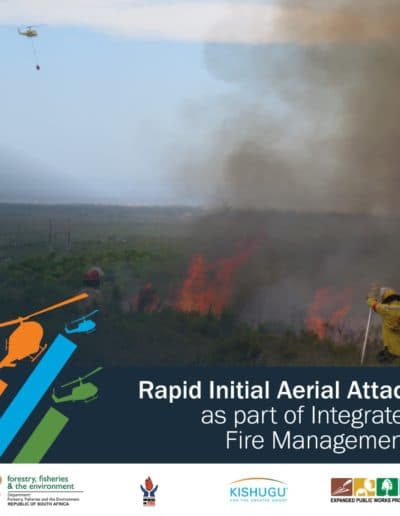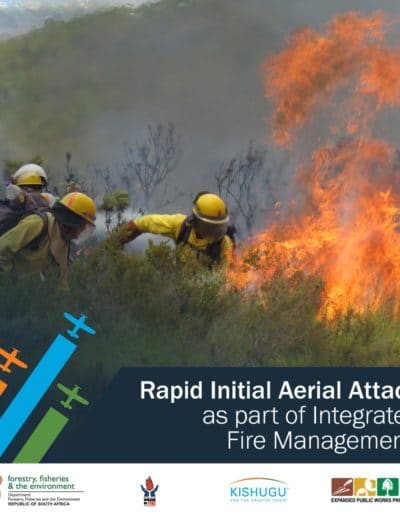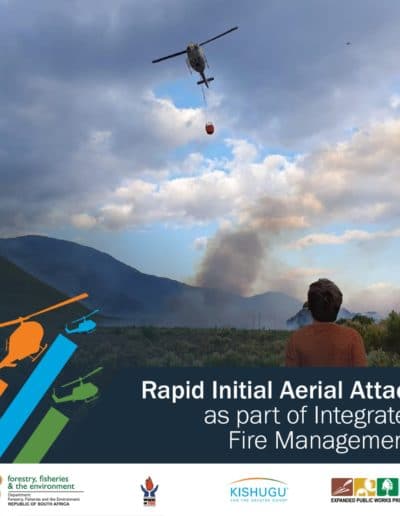The 2021/22 summer fire season has highlighted that prioritising aerial support plays a large role in the success rate of extinguishing fires. Western Cape Local Government Minister, Anton Bredell, says 90 percent of fires were extinguished within the first hour due to aerial support.
Providing aerial support to more than 80 wildfires in the Western and Eastern Cape this summer fire season has been part of the Department of Forestry, Fisheries and the Environment’s Working on Fire (WOF) Programme, implemented by the Kishugu Group. For the season to date, 25 Kishugu aircraft supplied to WOF, Western Cape Department of Local Government, City of Cape Town, SANparks and FPA’s, have flown over 300 hours as part of efforts to contain these fires. The aircraft include Command and Control (Spotter) aircraft; a large UH-60 Black Hawk helicopter, various medium UH-1H Huey helicopters and AT-802 Fixed Wing Water Bombers
WOF’s Managing Director, Trevor Abrahams, said Kishugu has an extensive pool of aerial resources readily available to clients. “We have the ability to provide the aerial resource of choice to our valued partners, including national, provincial and local government, fire authorities, fire protection associations (FPA’s), environmental agencies, and other landowners. Our existing mix of resources are elected based on the specific requirements of our clients and are strategically positioned for rapid initial attack.”
“Aerial resources are not a silver bullet and cannot extinguish fires as a stand-alone resource. However, they are an essential element of fire suppression activities in support of ground teams. Strategically targeted water drops cool the fire-line and enable ground teams to move in and snuff the flames.”
“This fire season is far from over and we can expect at least a few more fires before the rains return. Our WOF and Kishugu staff will continue to be vigilant and ready to respond to our partners’ call for assistance,” said Abrahams. “We do, however, like to caution people to take extra care to not start fires, and to report fires immediately,” added Abrahams.
CEO of Kishugu Aviation, Emile Grobbelaar, said: “About 90% of wildfires are directly or indirectly started by people. That means if we all work together and act wisely and responsibly when it comes to fire, we can really make a difference for the greater good. Kishugu Aviation and the WOF teams always strive to effectively and efficiently save lives, properties, and the environment from wildfires.”
Report fires: Dial 112 from a cell phone or 10177 from a landline
** Complete stats to recap the Summer Fire Season will be made available in May when the Summer Fire Season ends.




